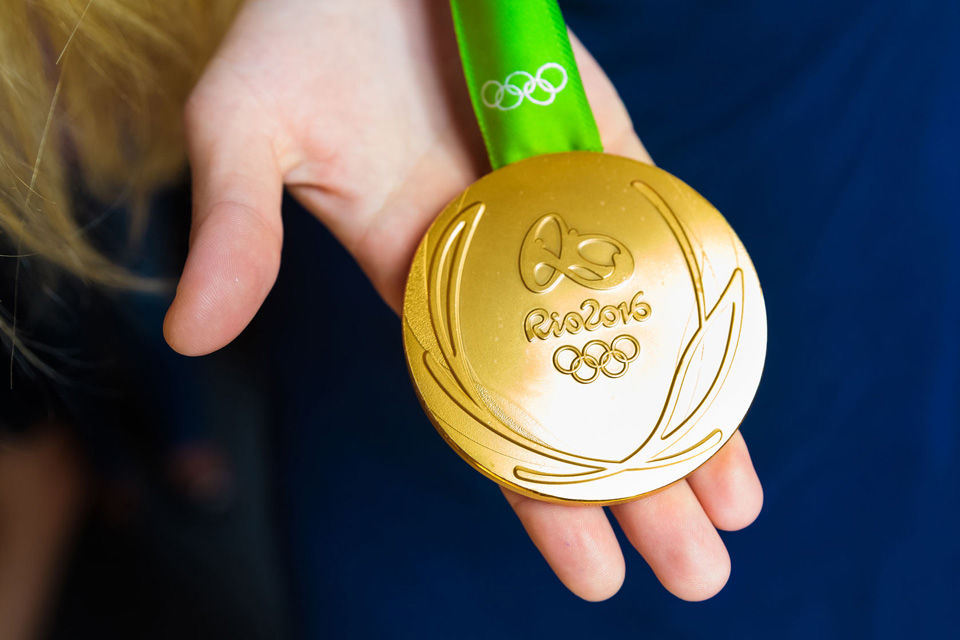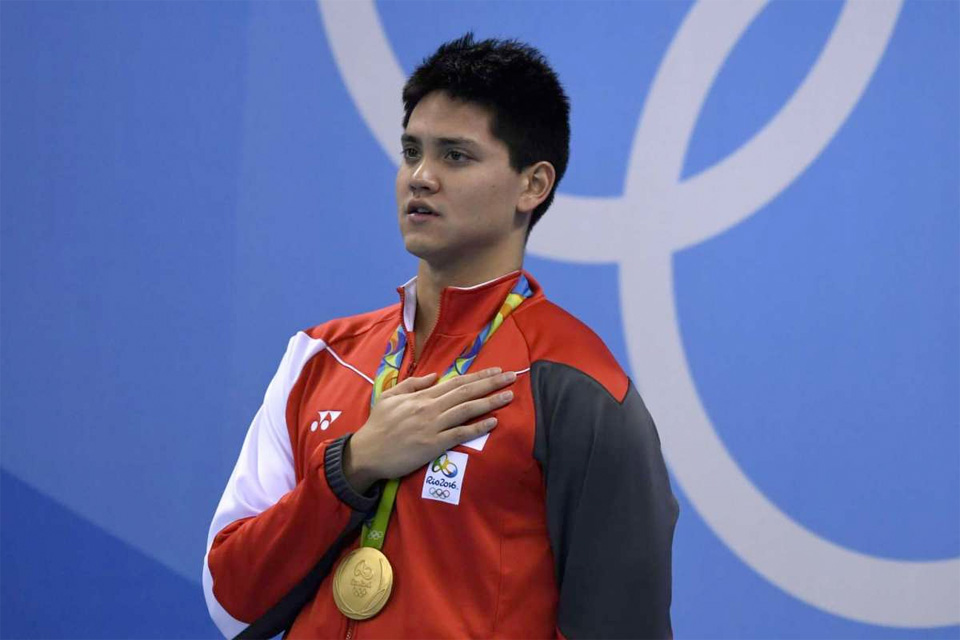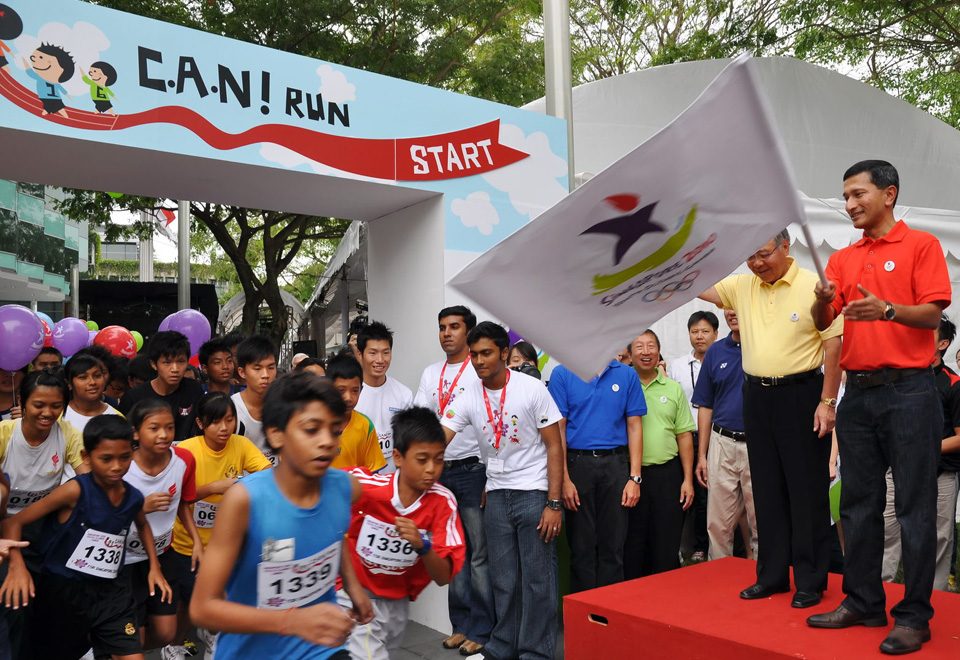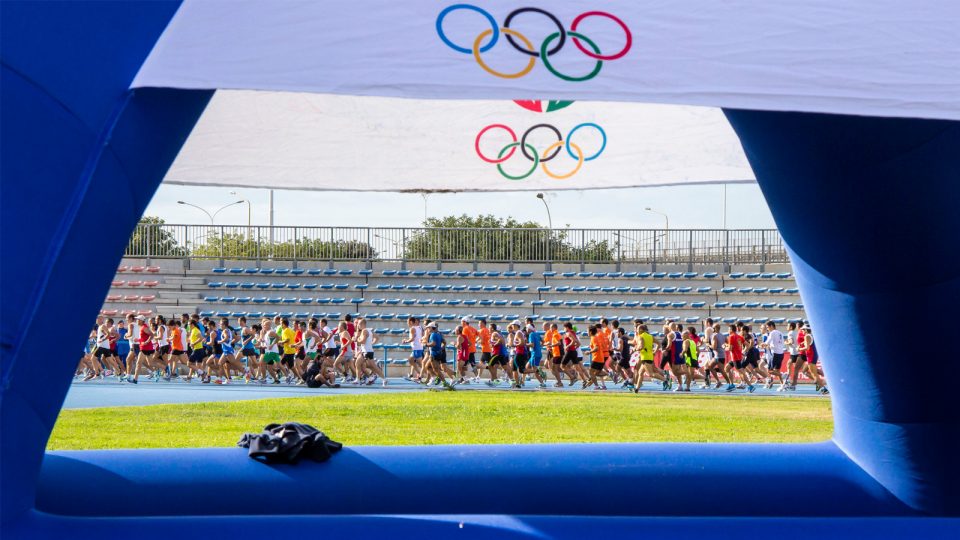Nobody expected it — least of all iconic American swimmer Michael Phelps — but when swimmer Joseph Schooling pushed hard toward his record-setting finish, Singapore’s first Olympic medal came home to a grateful nation. It’s hard to say who was more astonished; Phelps, Schooling, his coaches or spectators!
Not surprisingly, runners watching this historic moment thought, “If we can do it in the pool, why not on the track?” Suddenly, a world of possibilities presented itself to the Singapore running community.
Will this Olympic win be just the start of a new era? Is this an anomaly or fad that won’t be repeated? Now that Singapore has tasted Olympic gold, will it ever be possible to put the genie back into the bottle?
We have what it takes
There’s no denying that Singapore’s health and fitness movement is vibrant. Take one look at the enthusiasm exhibited by citizenry of all ages who devote time to exercise that keeps them physically and mentally vigorous.
Even outsiders applaud public initiatives, green space development and motivational incentives that keep the nation moving forward.
But active is one thing. Olympic medals are another. When Singapore came to a standstill to watch Joseph Schooling beat Phelps, an age-old question wasn’t lost on TV viewers: why has it taken so long for us to win a medal?
It’s not for lack of monetary incentives. According to Singapore National Olympic Council, every Singaporean athlete is entitled to tap the nation’s Multi-million Dollar Awards Program if they medal at the games, and those cash prizes are impressive: $1 million for a gold, $500,000 for silver and $250,000 for a bronze.
There is certainly no shortage of coaches willing to devote their lives to training future Olympians now that the nation’s mindset has been deeply changed by Schooling’s win.
For runners, it no longer sounds implausible to take a page from the swimmer’s playbook, but there are factors to be considered when it comes to preparing the next generation of Olympic contenders—eight of which are essential if Singapore runners are to see how it feels to stand on that medal podium.

1. Family support is critical
Without family support, medalling is practically impossible. Colin and May Schooling were willing to do anything to get Joseph to that podium. Their sacrifices included bank loans, the sale of property, dramatically denying themselves (they drove the same Mercedes-Benz wagon for 30 years) and foregoing a portion of their lives to make sure he received the best preparation.
They took turns accompanying him to the U.S. for training and tapped every Singapore resource they could find.
How many parents of runners are willing to be this unselfish to make their child’s dream come true? It’s a question parents of talented runners may have to ask themselves every day.
2. Character counts
Joseph Schooling may be dynamic in the water, but without having sound values, his medal might never have been conferred in Rio this summer. What’s required to build the foundation of a winner? Setting sensible limits, teaching a child to take responsibility for his actions and raising him with a solid belief that all things are possible — even an Olympic medal.
Character building is no easy task for parents, teachers, coaches and influencers in the 21st Century. One has only to look at the shameful example of U.S. swimmer Ryan Lochte whose false accusations in Rio overshadowed other news.
In fact, good character is at the heart of developing a medal-winning runner and if Singapore is to win a future running medal, character building must begin now.

3. No eyes on the prize
If a running friend is so obsessed with nabbing a finishing medal that he fails to enjoy the journey to that goal, you could be in the company of someone who hasn’t the moral compass to make it to the Olympics.
Think of the fearless runners you have encountered while competing over the years; the champions who want to win to prove that all of that training, sacrifices and the faith of countrymen were worthwhile.
Journalists investigating Schooling’s drive learned that he used Michael Phelps as his role model, but what he admired was the swimmer’s talent, technique, fortitude and performance — not the number of medals that hang on Phelps’ wall.
4. Pride in one’s roots
Can you imagine a runner saying negative things about their homeland without suffering repercussions? Pride in one’s roots is essential and the reason people, organisations and officials come to a runner’s aid when he needs financial and training assistance.
As luck would have it, runners are in excellent positions to exhibit love of country every time they compete abroad.
Being a home-grown ambassador courtesy of the world’s expansive running community is one of the biggest benefits a runner enjoys on the world stage. Schooling’s comment, that “even people from the smallest countries can achieve success,” are words every Singapore runner should take to heart.

5. Sometimes, you have to leave home
Travelling to Jacksonville, Florida to train as a youngster and then to Texas meant that Joseph Schooling had to step outside any fears he may have had about being accepted in another culture or society.
In an effort to train more strenuously, serious Singapore runners have gone to Kenya where the mountains and environmental conditions have bolstered their training programmes so they could move into the league of African athletes who have won plenty of Olympic gold.
With an eye toward making sure Singapore runners can receive advanced conditioning, will the government and organisations be willing to fund such efforts in the years ahead?
6. Identification of post-school, high-performance athletes
According to Chiang Hock Woon, deputy executive officer of Sport Singapore, every time teams return home from an Olympics, a substantive review is conducted to identify athletes’ strengths and weaknesses by analysing “what went right and what needs improvement.”
In order to build on positive performance aspects and repair negative ones, there’s likely to be additional emphasis placed on identifying competitors with Olympic potential and providing resources to support training programs like The National Youth Sports Institute that identifies and nurtures outstanding athletes.

7. A national effort
When Joseph Schooling popped up from the water to realise that he had medalled, the Singapore government, school system and national sporting organisations were put on notice: the entire nation will have to step up if Singapore is to raise more Olympians.
Money and resources are critical and entities like the Sporting Singapore Fund will require more attention and resources.
Schooling’s gold medal is likely to impact the role Singapore schools play in making sure children receive rudimentary training necessary to nurture talent.
There is no better institution to identify gifted athletes and children with unique talents than within the school system.
8. A job well done — now what?
After the reception at the airport, personal appearances and celebrations staged to show the beloved hometown hero Singapore’s pride in his performance, Joseph Schooling left for the U.S. and immediately returned to his routine in anticipation of beating his Rio finish time down the road.
Does he enjoy the notoriety? Who wouldn’t? But because he’s an athlete with as much character as he has talent, he also realises that with fame comes responsibility.
In his case, that means shouldering the weight of a nation’s hopes and expectations. But here’s what’s remarkable about the young man who swam to fame: He understands his impact on his homeland’s future athletic presence in the world community and his influence is expected to be monumental.
This is when all of that character building shows most of all!
In your opinion, can Schooling’s miraculous win be enough to change the face of Singapore’s approach to nurturing athletic talent in the future or are you of the mindset that nothing will change once the excitement of his win dies down?




